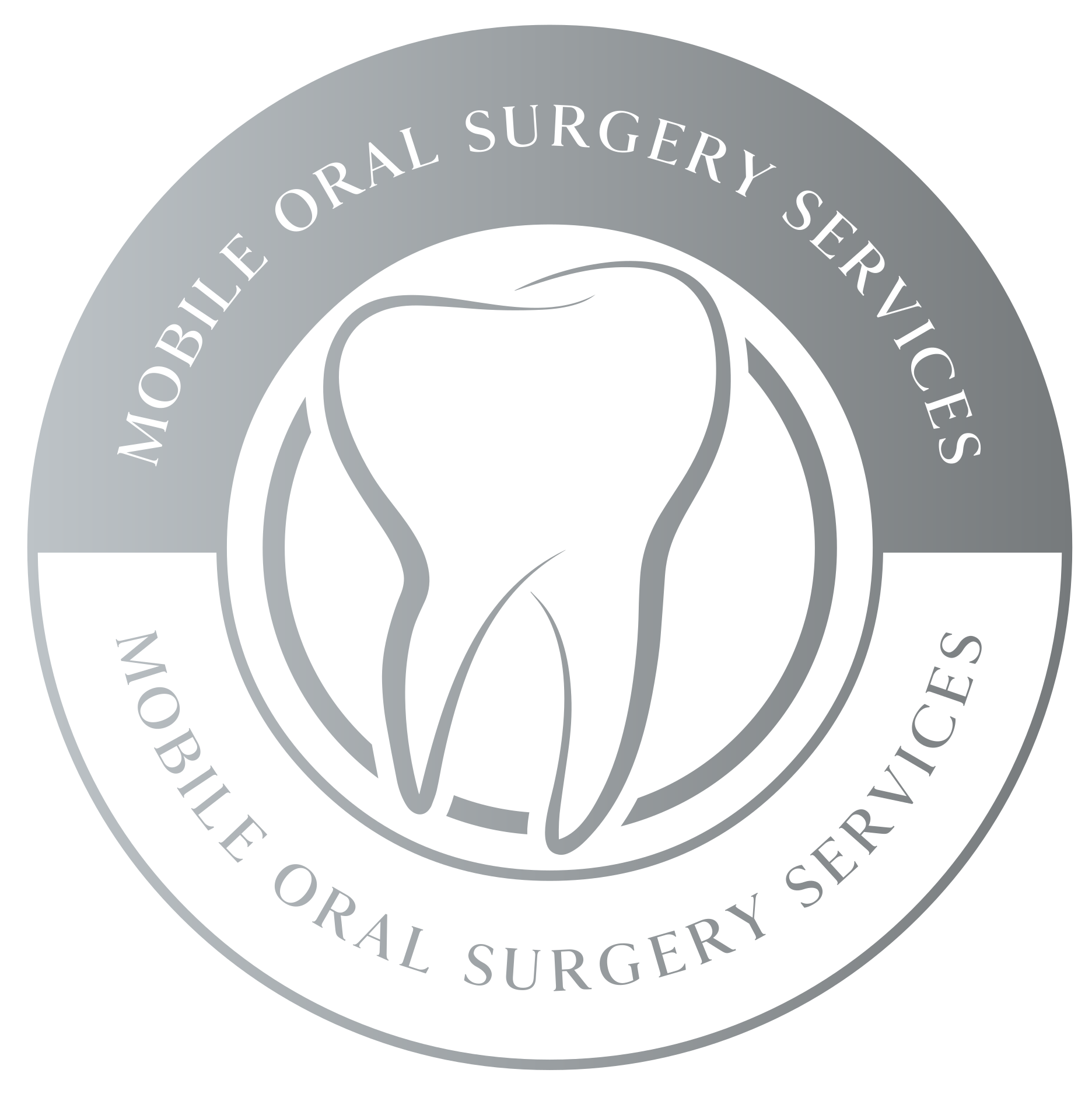Happy Gas Sedation
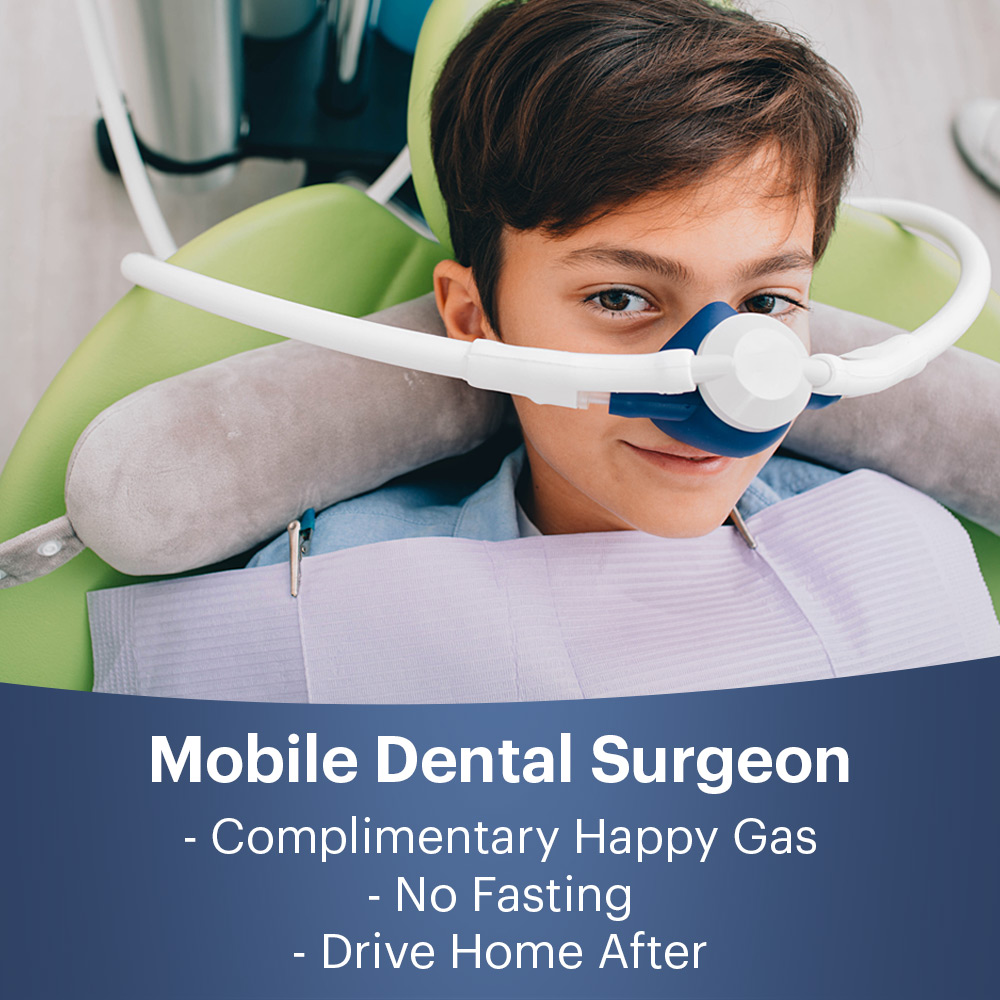

What is an happy gas sedation?
Why should I receive happy gas sedation during the oral surgery procedure?
Is happy gas sedation safe?
What patients are not suitable for happy gas sedation?
What is IV sedation?
Why should I receive IV sedation during the oral surgery procedure?
Is IV sedation safe?
What are your fees for sedation services?
What is happy gas sedation?
- The terms ‘happy gas sedation’, ‘laughing gas’ and ‘relative analgesia’ are used interchangeably and refer to a combination of oxygen and nitrous oxide gases which are inhaled by the patient through a nasal mask to provide predominately analgesic (pain relief) and anxiolytic (reduce anxiety and fear) effects.
- Happy gas sedation also makes your gag reflex less sensitive which improves your comfort during the oral surgical procedure.
- Nitrous oxide gas (in combination with oxygen) is an example of a technique used to provide minimal sedation and also an example of an inhalational anaesthetic agent.
- In contrast to deeper forms of sedation such as intravenous or general anaesthesia, patients are awake (but very relaxed) and do not require support or monitoring for the function of their respiratory or cardiac systems.
- With happy gas sedation the patient is able to obey commands, but may have a temporary altered cognition similar to being ‘tipsy’ during the procedure.
Why should I receive happy gas sedation during the oral surgery procedure?
- Dr Daniel routinely utilizes happy gas sedation provided complimentary in conjunction with the oral surgery procedures he performs. He has received excellent feedback from patients who are comfortable, relaxed and pain free throughout the entire procedure.
- Happy gas sedation is an effective technique which can also be safely provided to children and pregnant women, although elective oral surgery procedures in pregnant women are postponed until after birth.
- Because the effects of happy gas sedation wear off rapidly, you are able to drive home 30minutes after the procedure concludes.
- Over 95% of patients undergoing an oral surgery procedure are medically suitable for the happy gas sedation procedure – you will be medically assessed at the consultation appointment regarding your suitability for happy gas sedation.
Is happy gas sedation safe?
- Happy gas sedation is a highly safe and effective technique in the majority of patients.
- Unfortunately, a very small percentage of patients may not be medically suitable for happy gas sedation and if this is the case, you will be informed by Dr Daniel at the consultation appointment.
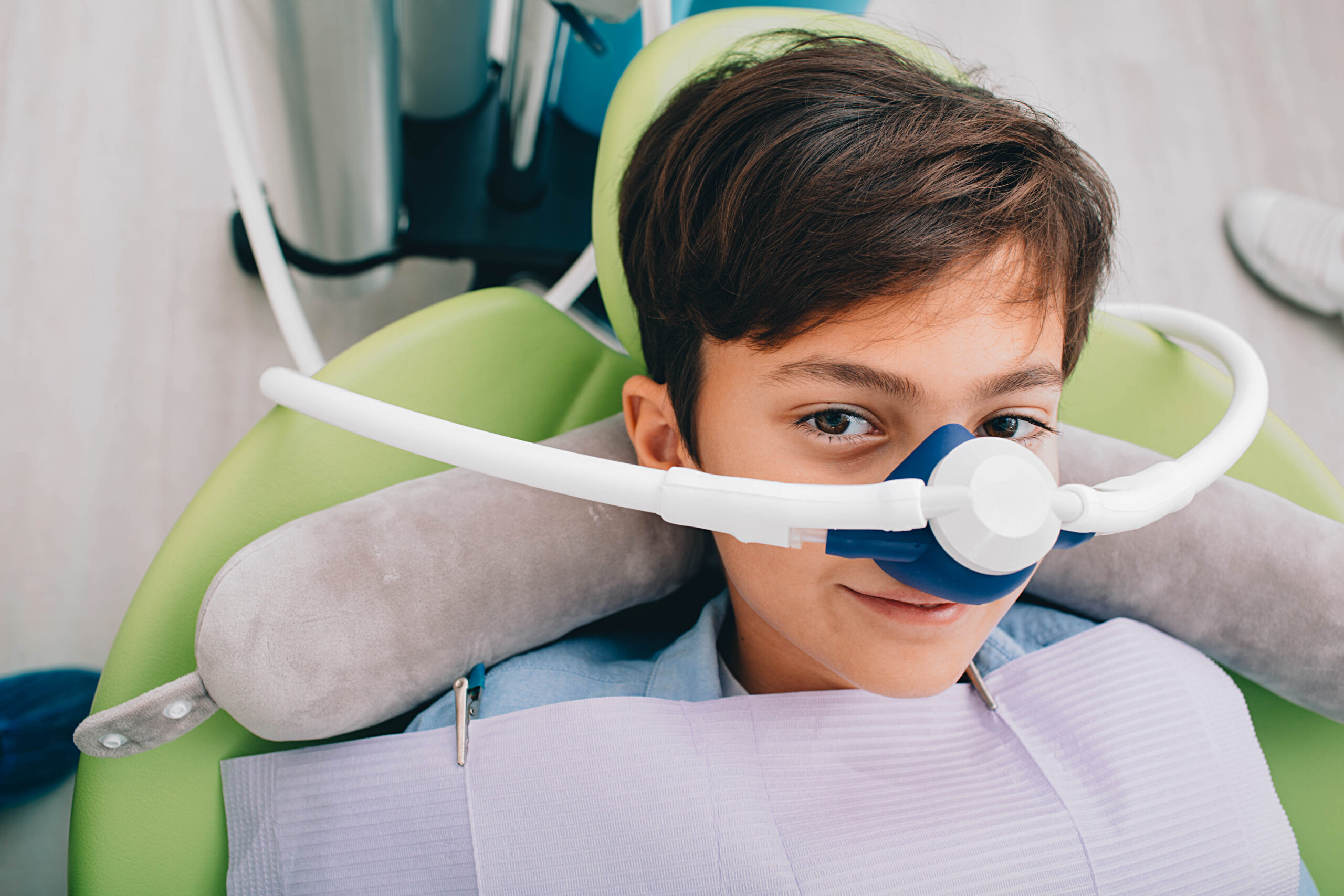
What patients are not suitable for happy gas sedation?
| Absolute contra-indication | Reason |
|---|---|
| Air containing cavities e.g pre-existing bowel distension, increased middle air pressure, pneumothorax, pneumocephalus, air embolus, recent eye surgery associated with intra-ocular gas | Nitrous oxide can diffuse into gas filled cavities which may increase pressure and/or volume in these spaces leading to complications |
| Heart failure or severe cardiac impairment | Nitrous oxide may cause myocardial depression to worsen heart failure |
| Patients with Vitamin B12 deficiency or disorders of folate or methionine synthesis of metabolism requiring happy gas sedation for prolonged periods of time | Nitrous oxide may inactivate Vitamin B12 and interfere with DNA synthesis causing haematological and /or neurological adverse effects |
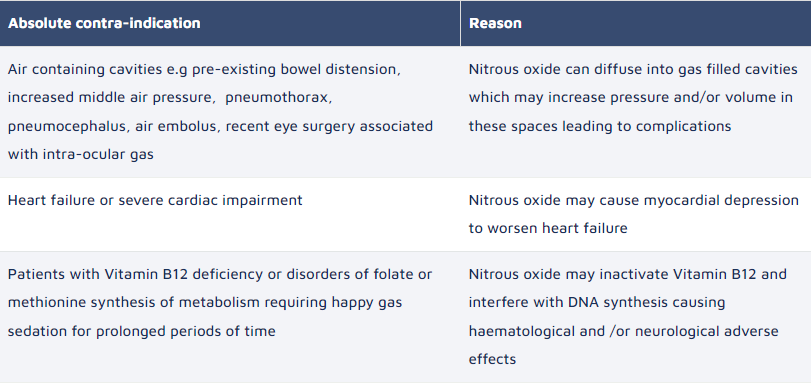
The following patients are at increased risk of adverse outcomes from happy gas sedation, and as such its use should be avoided where possible.
- children younger than 2 years
- elderly or frail patients
- patients with severely limiting heart, cerebrovascular, lung, liver or kidney disease
- severely obese patients
- patients with significant obstructive sleep apnoea
- patients with a known or suspected impediment to endotracheal intubation
- patients with a history of acute gastrointestinal bleeding, particularly if associated with cardiovascular compromise or shock
- patients with severe anaemia
- patients at risk of aspiration (which may necessitate endotracheal intubation)
- patients who have had previous adverse events due to anxiolysis, sedation, analgesia or anaesthesia
- patients on other oral sedative drugs such as oral benzodiazepines
- patients with severe anxiety or severe behavioural disorders – happy gas sedation is unlikely to provide adequate anxiolysis and deeper forms of sedation are recommended, if indicated and appropriate
- nasal obstruction (e.g bilateral nasal polyps)– patient unlikely to be experience the analgesia and anxiolytic effects
IV sedation
What is IV sedation?
- IV sedation refers to a combination of medications which are placed through the vein (IV = intravenous) to allow the patient to be asleep and comfortable during the procedure.
- Common medications given through the vein include propofol, midazolam and fentanyl.
Why should I receive IV sedation during the oral surgery procedure?
IV sedation may be a more suitable solution than happy gas sedation in the following circumstances
- Patient preference – patient wishes to be asleep and have no recollection of the procedure
- Patients with severe anxiety or a severe behavioural disturbance – where happy gas sedation is anticipated to be insufficient.
- Patients requiring four or more complex surgical extractions in the one appointment – the patient is generally more comfortable being asleep in this situation.
Please note that IV sedation is associated with an additional cost paid to the sedation specialist, and a waitlist to find a suitable time for this procedure.
Is IV sedation safe?
- IV sedation is also a highly safe and effective technique in the majority of patients when administered by a sedation specialist, although a minority of patients may not be medically suitable for this procedure.
- IV sedation is a deeper form of sedation and requires more intense monitoring during the procedure, including your heart rate and oxygen levels in your blood.
- The potential benefits and risks of this procedure in your situation will be discussed with you at the consultation with the sedation specialist.
What are your fees for sedation services?
IV sedation (asleep, comfortable) attracts an additional fee to be paid directly to your sedation specialist. A consultation with your sedation specialist costs $150. The total cost for the IV sedation procedure depends on the anticipated duration, and a formal quote for the procedure is provided to you at the consultation.
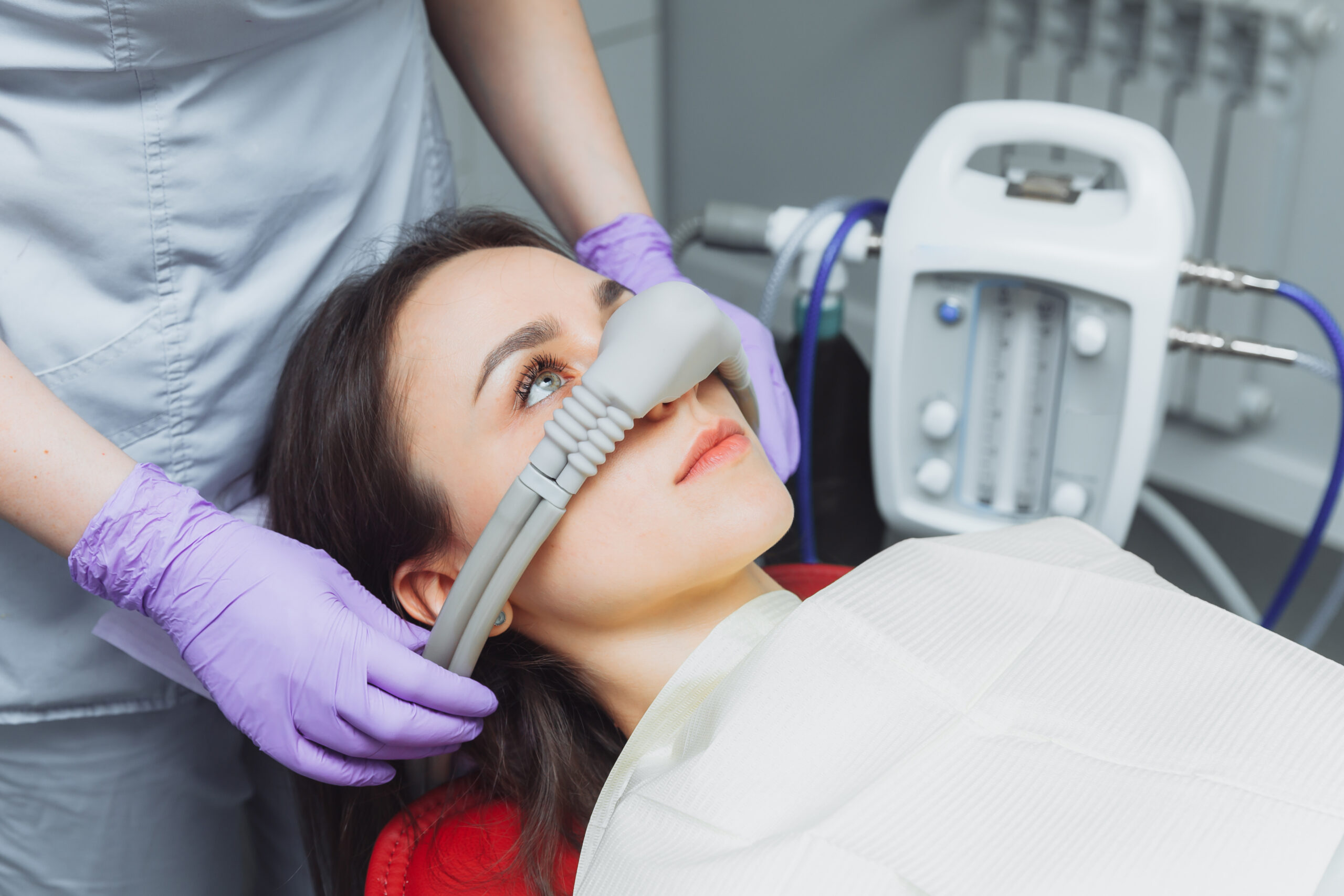
Inhalational (happy gas) sedation
